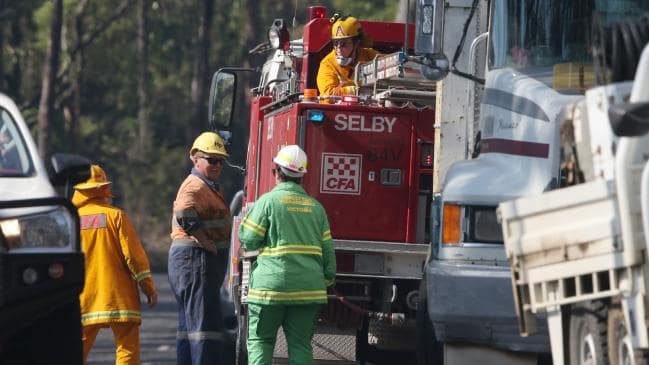Africa has the world’s lowest electrification rate. Its power consumption per capita is just 613 kilowatt-hours per year, compared to 6,500 kWh in Europe and 13,000 in the United States, African Development Bank (AfDB) President Akinwumi Adesina observed in July 2017. That’s 9.4% of EU and 4.7% of US electricity consumption. It’s equivalent to Americans having electricity only 1 hour a day, 8 hours a week, 411 hours per year – at totally unpredictable times, for a few minutes, hours or days at a stretch.
It’s actually even worse than that. Excluding significantly electrified South Africa, sub-Sahara Africans consume an almost irrelevant 181 kWh of electricity per capita – 1.4% of the average American’s!
In Sub-Saharan Afria, over 600 million people have no electricity, and over 700 million rely on wood, grass and dung for cooking and heating. The region is home to 16% of the world’s population, and 53% of those without electricity. By 2050, its urban populations could increase by 600 million.
Determined to transform the “dark continent,” the AfDB launched a $12-billion New Deal on Energy in 2017 and a Light Up and Power Africa initiative in July 2018. It frequently emphasized that access to sufficient supplies of reliable, affordable modern energy – including fossil fuels – is critical for the continent’s social and economic development. Without energy, it is impossible to create jobs, increase productivity, reduce inequality, improve people’s health and wellbeing, or end poverty.
The bank’s lofty goal for its energy New Deal is 100% access to electricity in urban areas, and 95% in rural areas, by 2025. In July 2017, Mr. Adesina told the African Union Summit he was excited that “Japan has answered our call” to “adopt a balanced energy mix” that includes “its ultra-super critical clean coal technologies” that remove sulfur, nitrogen oxides and particulates, while greatly reducing CO2 emissions.
In 2018, the bank approved seed money for a Nigerian coal project and geared up to finance a 350MW coal plant in Senegal. It also initiated plans for a $2-billion coal-fired power station in the Kenya’s port city of Lamu, after the IMF, World Bank and other western lenders rebuffed Kenya.
But then Mr. Adesina and the AfDB caved in to carbon colonialist pressure. The bank now says almost nothing about coal or even natural gas. Its new themes include: responding to global concerns about climate change, gradually adopting a “low-carbon and sustainable growth path,” significantly reducing reliance on fossil fuels, and transitioning to “green growth” and “clean renewable energy,”
----------------------------------------------------------------------------------------------
In September 2019, the bank announced that it planned to begin scrapping coal-fired power plants all across Africa, build “the largest solar zone” in the world, and pull funding for the Lamu power plant. “We’re getting out of coal,” Mr. Adesina said. “Coal is the past, and renewable energy is the future.”
So the AfDB has joined the World Bank, Goldman Sachs and other Multilateral anti-Development Banks in caring more about climate alarmism and avoiding criticism from the likes of Greta, the perpetually aggrieved and angry Grinch of Christmas 2019 – than they do about safeguarding the lives, livelihoods, health and living standards of hundreds of millions of electricity-deprived Africans.
This 180-degree flip-flop is delusional, dysfunctional and disingenuous. For many, it will be lethal.
First, there is nothing “green,” “clean” or “renewable” about wind and solar energy. The vast amounts of land and raw materials, mines and factories required to build wind turbines, solar panels, batteries and transmission lines – to harness widely dispersed, insufficient, intermittent, weather-dependent wind and solar energy to benefit Sub-Saharan Africans – are anything but clean, green, renewable or sustainable. In fact, trying to meet those needs would require millions of turbines and billions of solar panels.
Second, The AfDB cannot possibly achieve its Energy New Deal or Light Up and Power Africa goals with wind and solar. It will never reach 100% or even 25% access to meaningful electricity that way. No country has ever built or sustained a modern economy this way – and countries that have tried to by mandating wind, solar and fossil-fuel-free economies are paying a terrible price. Headlines tell the story.
Germany’s green suicide: Industrial job losses top 80,000. German wind industry faces extinction. 340,000 German families have pricey electricity cut off. British steel faces insolvency; British families are already deeply in debt to their energy suppliers, before winter even sets in. Meanwhile, the fossil and nuclear-based US economy added another 266,000 jobs in November and wages also grew.
Third, there is no evidence to support claims that temperatures, droughts and weather anywhere in Africa are unprecedented or due to carbon dioxide from fossil fuels – or from wood, grass and dung fires. They and other climate changes have been common throughout history, and an energy-rich, prosperous Africa will be far better able to deal with future changes than a poor, energy-deprived continent could.
Fourth, China, India, Indonesia and other countries are not going stop building coal- and gas-fired power plants – and emitting enormously more CO2. Why should Africa and the AfDb go down a different path?
Finally, banishing fossil fuels (and nuclear), and focusing on pseudo-renewable energy will mean millions of children and parents will continue to suffer and die needlessly every year from diseases of poverty and energy deprivation. This eco-manslaughter at the hands of climate activists and banks must not continue.
Africans have a fundamental human right to more than the few light bulbs, cell phone charging stations and one-cubic-foot refrigerators that can be supported by a wind turbine and solar panel economy.
Thankfully, Botswana, Tanzania and other countries recognize that their continent is rich in coal, oil, natural gas, hydro and uranium. They intend to utilize those resources, take charge of their destinies, develop their economies and improve their people’s lives – by building coal- and gas-fired power plants, hydroelectric facilities, and pebble bed modular or other nuclear power plants. They will also install wind turbines and solar panels in distant villages until electrical grids bring 24/7/365 power to the villages.
No single solution will work everywhere. But “under no circumstances are we going to apologize” for developing Africa’s oil, gas and coal fields, Equatorial Guinea energy minister Gabriel Obiang Lima has said, adding it is “criminal” for any non-African to suggest that Africa should ignore any resources it has.
“Energy is the catalyst for growth,” says Gwede Mantashe, South Africa’s new Mineral Resources and Energy Minister and national chair of its African National Congress. Africa has long exported its oil and gas to the rest of the world, while remaining energy-deficient itself, he noted during a recent Africa Oil Week conference in Cape Town. That is no longer tenable. His new Integrated Resources Plan includes coal and nuclear, and all forms of energy, as appropriate to a given time and situation.




